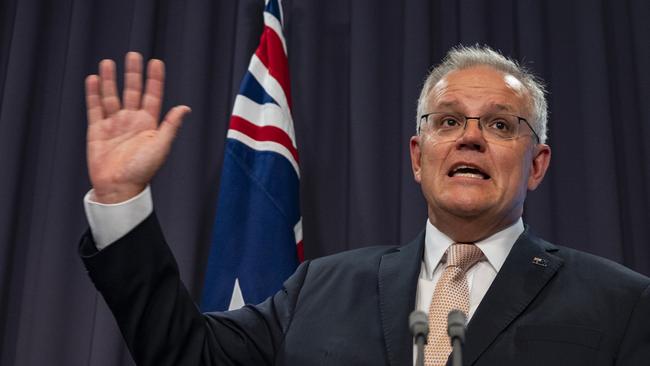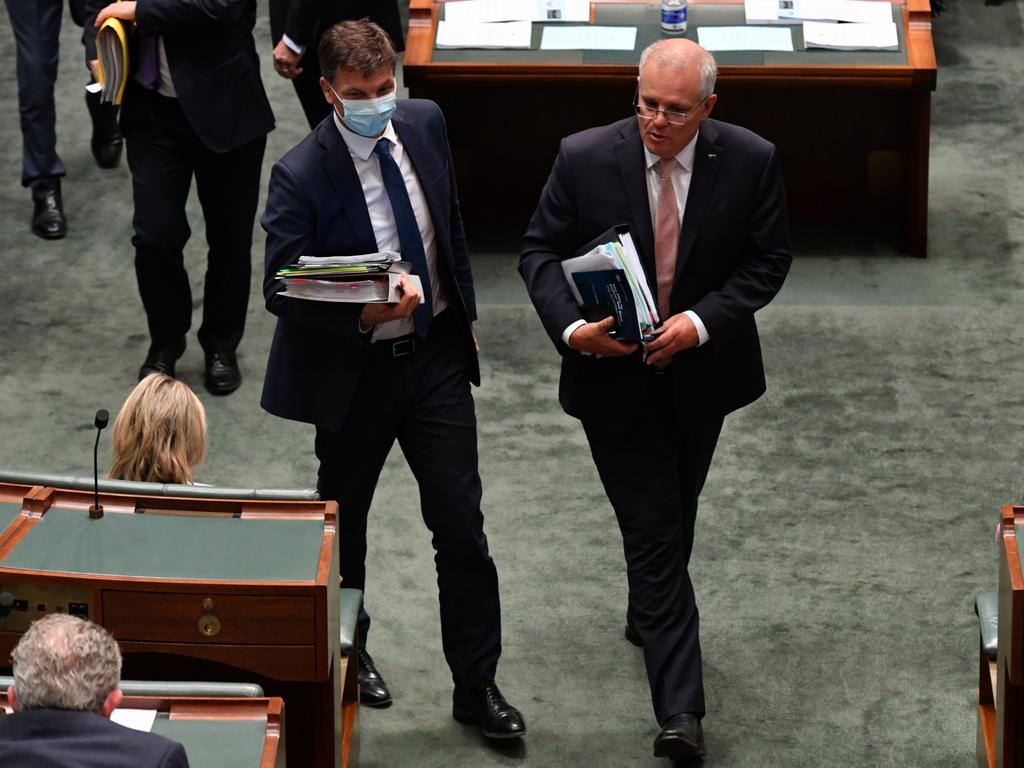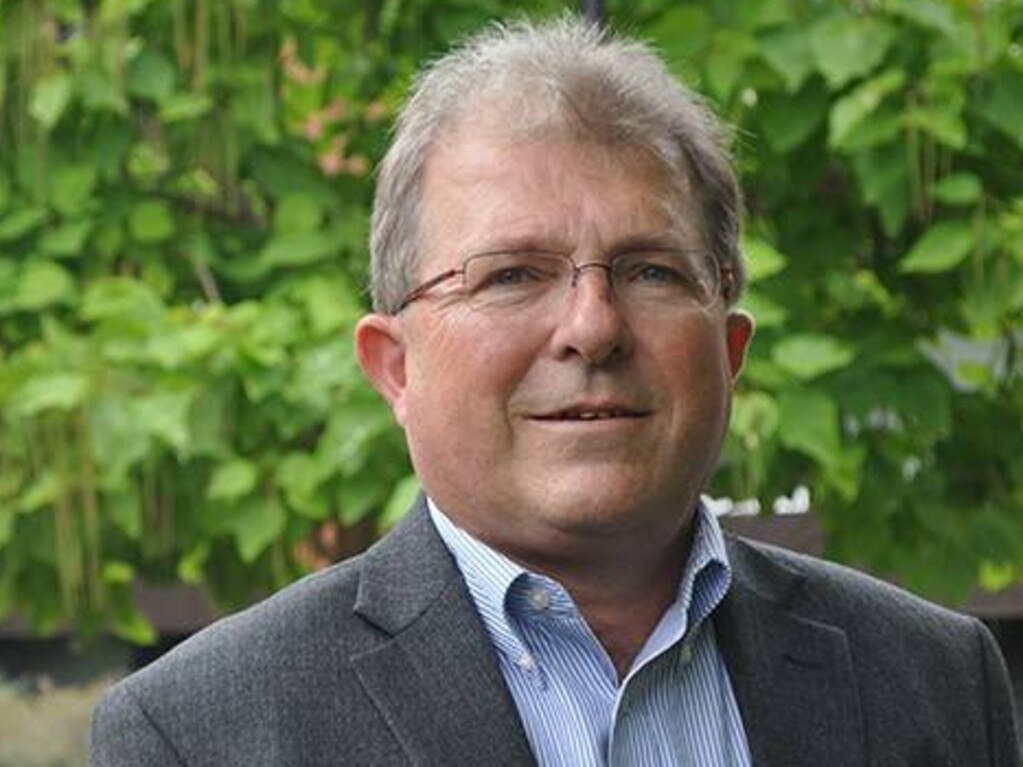
Morrison’s language is key to his purpose. He never says net zero is crucial to save the planet. He never says it is about meeting the moral challenge of the age. He uses, instead, the vernacular of the Coalition – it is about managing a structural transition going to jobs, industry and incomes.
Politics always dictates climate change policy in Australia. But the politics is changing. Victory will go to the side better able to grasp the complex changing politics.
The Coalition-Labor bipartisanship on net zero at 2050 is a pivotal step. From this point, there is no going back. Agreement on 2050 means less disagreement on the 2030 or 2035 medium-term goal.
But it means something else – once you agree on the final goal, the debate, as Morrison says, is about the “how”. That’s an economic and technology debate. That’s the debate he wants. Morrison changed his position not to save the planet but to safeguard the Australian economy.
Morrison’s strategy for the 2022 election can be summarised in three words – economy, economy, economy. The strategy involves opening up the Australian economy post-pandemic; outlining a long-run more resilient economic growth agenda; and selling the “technology not taxes” plan for the journey to net zero at 2050. At each point it is an economic test.
If the people vote on the economy, not health or climate, Morrison has a chance of regaining lost ground. The irony about Morrison turning climate change into an economic issue is that it’s not the issue the economists want. For Australia, there is no return to the market-based price mechanism that prevailed, briefly, before Tony Abbott won the 2013 election.
The upshot is that the Morrison Government Emissions Reduction Plan released on Tuesday is strong on technology and weak on policy. Indeed, the plan is really an elaboration of the existing Technology Investment Roadmap. What are the policy changes we need to get to net zero? The answer is left hanging.
This goes to another truth about climate politics – the public wants responsible climate action but there are strict limits on the price people will pay. Australia’s public is anxious, exhausted by Covid, worried about health, focused on jobs, income, economic security and new travel ventures, keen to rekindle past lifestyles, worried about climate change but in no mood for punishing changes to fix the emissions problem.
The heart of Morrison’s new package is the claim to deliver net zero without pain, higher taxes, job losses or hurting industry. That’s what the plan says. It will achieve net zero but “not put industries, regions or jobs at risk”. Nor will coal or gas production be shut down. It is a fantasy.
But it is a fantasy integral to the politics of climate change in Australia where the entire debate about net zero is conducted in a fog of deluded, dreamy optimism, where entrepreneurs are heroes and there are only golden opportunities from the biggest structural change Australia’s economy is facing in a century.
The reality is that the move away from fossil fuels will create new classes of winners and losers, and fresh tensions between the regions and the cities. The tensions over climate change will get worse, not better, as the adjustment gets more pressing.
Morrison’s plan is based on what he calls “the Australian Way”. You will hear a lot more about this, maybe in Glasgow. Morrison intends to run a concession/offensive strategy on climate. His concession is net zero; his offensive is the Australian Way – warning that what matters is delivery, not targets, and that technology is the only pathway to getting the results needed in the developing world.
“We won’t be lectured by others,” Morrison said on Tuesday. This will play well in the election campaign; less so in Glasgow. But Morrison now seems more willing to roll out the comparative data with carefully selected timelines – between 2005 and 2019 Australia’s emissions reduction is 21 per cent, the same as the EU, but more than the US at 13 per cent, Japan at 10 per cent and New Zealand at 4 per cent.
Morrison got the Coalition policy change he needed without a Liberal Party revolt, without the National Party imposing a veto and without losing his job. Given recent history, that’s a defining achievement. Any idea Malcolm Turnbull could have delivered this is fanciful. The bigger test lies ahead: can Morrison carry the election by appealing to the two Australias?
There are two Australias on climate change. This split exists on both sides of politics, the product of a rich urban-centred quasi-progressive nation on one hand and a powerful fossil-fuel, emissions-intensive, regional-orientated economy on the other. The winning political strategy involves extracting degrees of support from both Australias.
This is how Morrison beat Bill Shorten in 2019. But the task is tougher this time. Did you see the ominous message on page one of The Australian on Tuesday? It was the black-and-yellow strip advertisement running along the bottom of the page – “Zero Emissions, Zero Jobs, Zero Future”, with the kicker “Thanks for Zero, ScoMo, Barnaby & Albo”.
This was Clive Palmer in action. He will probably spend $60m on this message before voting day. Sure, Palmer mightn’t win a seat. But what counts is his message. And it will hurt Morrison more because it goes to the claim of betrayal. Meanwhile, Pauline Hanson will have a field day. Her first response to the National Party decisions was the Nats “have rolled over” – in short, sold out. Now the entire world knows that Barnaby Joyce spoke against net zero in the party room, how does he champion the new government policy with any credibility?
Morrison has moved immediately to counter the accusation from conservatives that his policy switch is a betrayal. He needs to kill off this allegation before it takes hold. Morrison said: “I always said I would not commit to net zero by 2050 unless we had a plan to achieve it. Now we have that plan.” So everything depends on the plan. It is an economic policy and his redemption mechanism on trust. The problem is the plan not being sufficiently robust or credible or informed by modelling to do the job.
Morrison made clear his refusal to advance the 2030 targets is about trust. He is completely correct in this political judgment. If Morrison had got more ambitious at 2030 the consequences would have been fatal – he would never have got the National Party deal and he would have been torn apart by the right of politics. As ever, climate change in Australia is driven by the limits and openings inherent in the politics.








The message from Scott Morrison’s new emissions plan and his bringing the Coalition to net zero at 2050 is the reinvention of climate change as an economic policy – if climate action is about morality the progressives win, but once it becomes an economic challenge Morrison has a fighting chance.